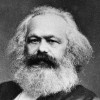“ No equal capital puts into motion a greater quantity of productive labour than that of the farmer. Not only his labouring servants, but his labouring cattle, are productive labourers. In agriculture, too, Nature labours along with man; and though her labour costs no expense, its produce has its value, as well as that of the most expensive workmen. ”
Adam Smith, The Wealth of Nations (1776). copy citation
| Author | Adam Smith |
|---|---|
| Source | The Wealth of Nations |
| Topic | agriculture cost |
| Date | 1776 |
| Language | English |
| Reference | An Inquiry into the Nature and Causes of the Wealth of Nations |
| Note | |
| Weblink | http://www.gutenberg.org/files/3300/3300-h/3300-h.htm |
Context
“It puts immediately into motion, therefore, a much greater quantity of productive labour, and adds a much greater value to the annual produce of the land and labour of the society, than an equal capital in the hands of any wholesale merchant.
No equal capital puts into motion a greater quantity of productive labour than that of the farmer. Not only his labouring servants, but his labouring cattle, are productive labourers. In agriculture, too, Nature labours along with man; and though her labour costs no expense, its produce has its value, as well as that of the most expensive workmen. The most important operations of agriculture seem intended, not so much to increase, though they do that too, as to direct the fertility of Nature towards the production of the plants most profitable to man.”
source


